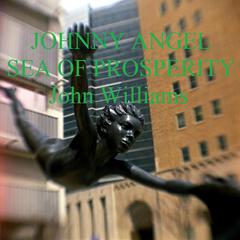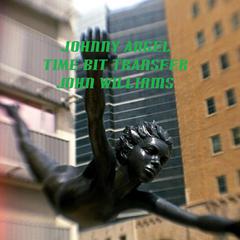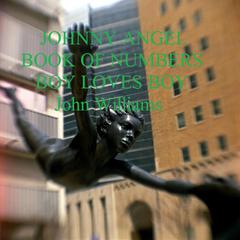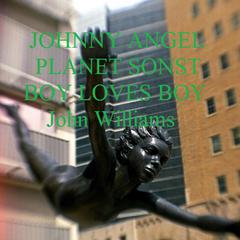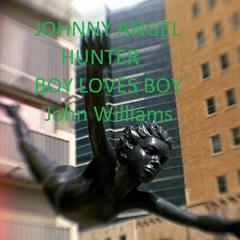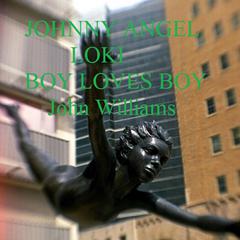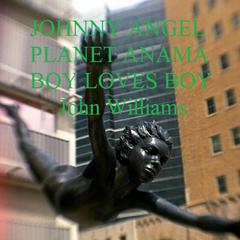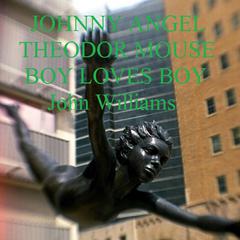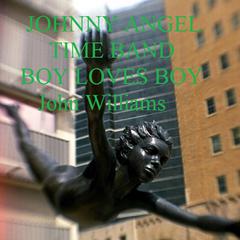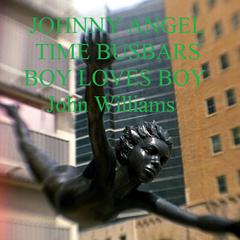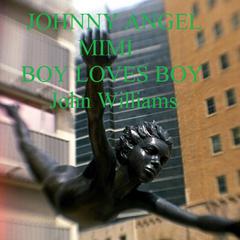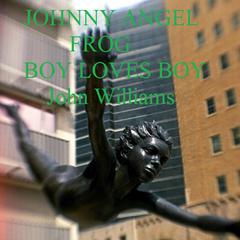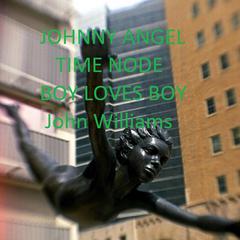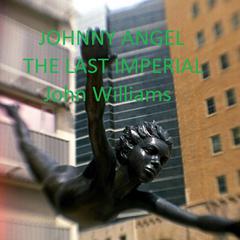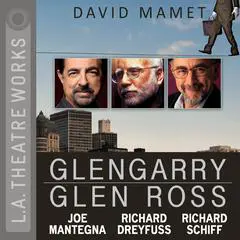 Play Audiobook Sample
Play Audiobook Sample
Butcher’s Crossing Audiobook
 Play Audiobook Sample
Play Audiobook Sample
Quick Stats About this Audiobook
Total Audiobook Chapters:
Longest Chapter Length:
Shortest Chapter Length:
Average Chapter Length:
Audiobooks by this Author:
Publisher Description
In his National Book Award–winning novel Augustus, John Williams uncovered the secrets of ancient Rome. With Butcher's Crossing, his fiercely intelligent, beautifully written western, Williams dismantles the myths of modern America.
It is the 1870s, and Will Andrews, fired up by Emerson to seek "an original relation to nature," drops out of Harvard and heads west. He washes up in Butcher's Crossing, a small Kansas town on the outskirts of nowhere. Butcher's Crossing is full of restless men looking for ways to make money and ways to waste it. Before long Andrews strikes up a friendship with one of them, a man who regales Andrews with tales of immense herds of buffalo, ready for the taking, hidden away in a beautiful valley deep in the Colorado Rockies. He convinces Andrews to join in an expedition to track the animals down. The journey out is grueling, but at the end is a place of paradisiacal richness. Once there, however, the three men abandon themselves to an orgy of slaughter, so caught up in killing buffalo that they lose all sense of time. Winter soon overtakes them: they are snowed in. Next spring, half-insane with cabin fever, cold, and hunger, they stagger back to Butcher's Crossing to find a world as irremediably changed as they have been.
Download and start listening now!
"Anything that's prefaced by a quotation from Melville's The Confidence Man is ok by me. This one, by the author of Stoner, owes a lot more to Melville than that -- from Transcendental meditations to musings on "white," not to mention the monomania of a man on a hunt (like Gatsby, come to think of it, but broader, and deeper, and colder/wetter, and hotter/thirstier). This is Moby-Dick in the early American west, with many, many buffalo instead of a single whale, and set very very much on land. Williams's writing doesn't lend itself to easy quotation -- he does not write epigrammatically, but gorgeously. I'd imagine it would be a wonderful book to read aloud (if anyone still does that). The parts that I marked to re-read and re-read are paragraphs, passages, and pages, so I'll leave it to you to get a copy, open it to any page, and see if you can put it down."
— Sarah (4 out of 5 stars)
Quotes
-
“Harsh and relentless yet muted in tone, Butcher’s Crossing paved the way for Cormac McCarthy. It was perhaps the first and best revisionist western.”
— New York Times Book Review -
“Writers as talented and right-minded as John Williams are not naturally plentiful.”
— New York Sun -
“[This story] becomes a young man’s search for the integrity of his own being...The characters are defined, the events lively, the place, the smells, the sounds right. And the prose is superb.”
— Chicago Tribune -
“One of the finest books about the elusive nature of the West ever written…It’s a graceful and brutal story of isolated men gone haywire.”
— Time Out New York -
“John Williams’ unsparing novels express a highly qualified though resilient optimism about our ability to salvage something of value from life’s impossible conditions.”
— Times Literary Supplement -
“John Williams’ Butcher’s Crossing is a Western masterpiece, an unflinching parable of endurance.”
— NPR.org -
“One of the finest novels of the West ever to come out of the West.”
— Denver Post
Butcher’s Crossing Listener Reviews
- — 7/7/2023
-
" I didn't enjoy this as much as Williams' other novels, Stoner and Augustus, which were both two of my absolute favorite books I read this year, but it was nonetheless a very good read despite some slow going for me through the first half. It was really hard for me to get engaged in this book at first for some reason, but that was probably more my fault than the book's; I just don't think I was in the mood for a western when I started it, but I was definitely craving more Williams, so that kept me going. Once the characters found themselves in true jeopardy, snowbound in the mountains, that was where the rubber hit the road for me, and from that point on the rest was gripping. Even through the slow parts, though, Williams' fine prose sustains you. For those looking for a revisionist western/back-to-nature/survival novel that is also a well written piece of literature, you can't go wrong here. I could see it making a fine film adaptation, which it is slated to be in 2013. I look forward to that, if only for the reason that it will garner some more attention for this under-recognized novelist. "
— Rod, 1/19/2014 -
" I don't like westerns, but I liked this one. Big country, big hunting, big dreams -- crashing headlong into the reality of the old west. "
— The, 1/9/2014 -
" The weakest of Williams's novels: if you're going to read him (and you should), read Stoner and Augustus. "
— Bryant, 12/31/2013 -
" John Williams wrote Stoner which I enjoyed. So wanted to read something else by him. This was written just as wonderfully. Would read him again. "
— Margie, 12/25/2013 -
" I don't think I've actually really read a Western before. This is less of a cowboys and Indians Western, and more the story of a Harvard-educated Emerson-reading privileged man who goes out west to discover truth in the Western countryside. While I admire the writing and the grit, it's a pretty grim story and I probably won't be reading many more. However, I was surprised how quickly the story moved for me despite the harsh circumstances and 40-page descriptions of buffalo hunts. "
— Erin, 12/21/2013 -
" Will Andrews leaves Harvard and his prosperous Boston family for a tiny settlement called Butcher's Crossing, in search of his true self in the wilderness and a state of Emersonian transcendence. So he sets off on a buffalo hunt. But instead of Emersonian transcendence, he finds something considerably less inspiring. This is a Cormac McCarthy-style western before Cormac McCarthy, except that Williams avoids a descent into bloody grand guignol in favour of bleak restraint. And the ending is all the more powerful for it. "
— Leslie, 12/17/2013 -
" This is my second book by this author, and I'm having a hard time imagining him writing anything not worth reading. This is a real craftman of the art. The story this time is a great American Western. Think of a recent Robert Duvall movie. Yet, I'll tell you it leaves out American Indians, gunfights, beef cattle, and range wars, and STILL it has plenty left over to engage the reader and set it firmly in the genre. At least one reader called it a Western Moby Dick, and I can see the rationale, though, that comparison did not jump out at me. The ending is not what is expected...both to the characters and to the reader. There will be avid readers that will not like this book, but they will not be readers who read for either the craftsmanship or for the depth of the narrative. "
— Larry, 11/9/2013 -
" No Blood Meridian, and no Stoner, but haunting and engrossing all the same. I can't believe I ate a hamburger the day after reading the scene of the first day at the hunt. Or am I only enlightened to my own dark part in terrifying, unrelenting nature? "
— Katie, 11/5/2013 -
" I was considering rereading this and realized that my four star rating must have been given in a fit of insanity. This book kicks ass, and might be in my top five all time. John Williams is definitely top five favorite author. "
— Andrew, 9/17/2013 -
" My favorite of John William's three published works. I won't write much - just read it. "
— Steve, 7/10/2013 -
" What a terrific, unjustly neglected novel this is. Yes, it's a western, but it's also a haunting allegory on civilization (or humanity) and its destructive urges. Written in unostentatious but quietly effective and sometimes lyrical prose. Kudos to NYRB Classics for reviving this. "
— Frank, 7/2/2013 -
" Not at the same (stone cold perfect) level as STONER but great read. Compare it to the BLOOD MERIDIAN (which I've yet to make it through). Williams writing is pretty amazing. "
— Toby, 3/13/2013 -
" I liked this even better than Stoner. The descriptive language was lyrical. Some phrases and images will stay with me forever. I could reread this just to reexperience the language. "
— Janet, 12/9/2012 -
" Wonderfully slow paced, atmospheric book. And to date, the only book I've ever read that takes place in such a cowboyish time and place. "
— Joem, 11/16/2012 -
" One of the best books I ever read. I have read for many years.I think this is one of the greatest western novel ever written. It has more meaning today than even when it was wrote. "
— James, 7/19/2012 -
" quite good. reviews I have found do not compare it to heart of darkness. "
— Mark, 2/4/2012 -
" I love westerns, and this book takes you there and doesn't come back to get you. "
— Sharon, 4/12/2011 -
" A simple, yet elegantly written story of a buffalo hunt filled with depth and meaning while touching on the great themes of western literature. A great novel that is crying out to be reread, over and over again. "
— Ben, 4/9/2011 -
" This is a great book. I highly recommend it. The writing is beautiful, nature plays a big role and is exquisitely portrayed and then there's the human condition which the author shines a light on. "
— Ellen, 3/24/2011 -
" No Blood Meridian, and no Stoner, but haunting and engrossing all the same. I can't believe I ate a hamburger the day after reading the scene of the first day at the hunt. Or am I only enlightened to my own dark part in terrifying, unrelenting nature? "
— Katie, 1/3/2011 -
" What a terrific, unjustly neglected novel this is. Yes, it's a western, but it's also a haunting allegory on civilization (or humanity) and its destructive urges. Written in unostentatious but quietly effective and sometimes lyrical prose. Kudos to NYRB Classics for reviving this. "
— Frank, 3/24/2010
About John Williams
John Williams (1922–1994) was born in Texas. The poet and novelist taught at and received his PhD from the University of Missouri in the early 1950s. In 1955 he became the director of the University of Denver’s creative writing program, where he became the editor of the University of Denver Quarterly. He remained at Denver until his retirement in 1986. He was a cowinner of the 1973 National Book Award for Fiction for the novel Augustus.
About Anthony Heald
Anthony Heald, an Audie Award–winning narrator, has earned Tony nominations and an Obie Award for his theater work; appeared in television’s Law & Order, The X-Files, Miami Vice, and Boston Public; and starred as Dr. Frederick Chilton in the 1991 Oscar-winning film The Silence of the Lambs. He has also won numerous AudioFile Earphones Awards for his narrations.







